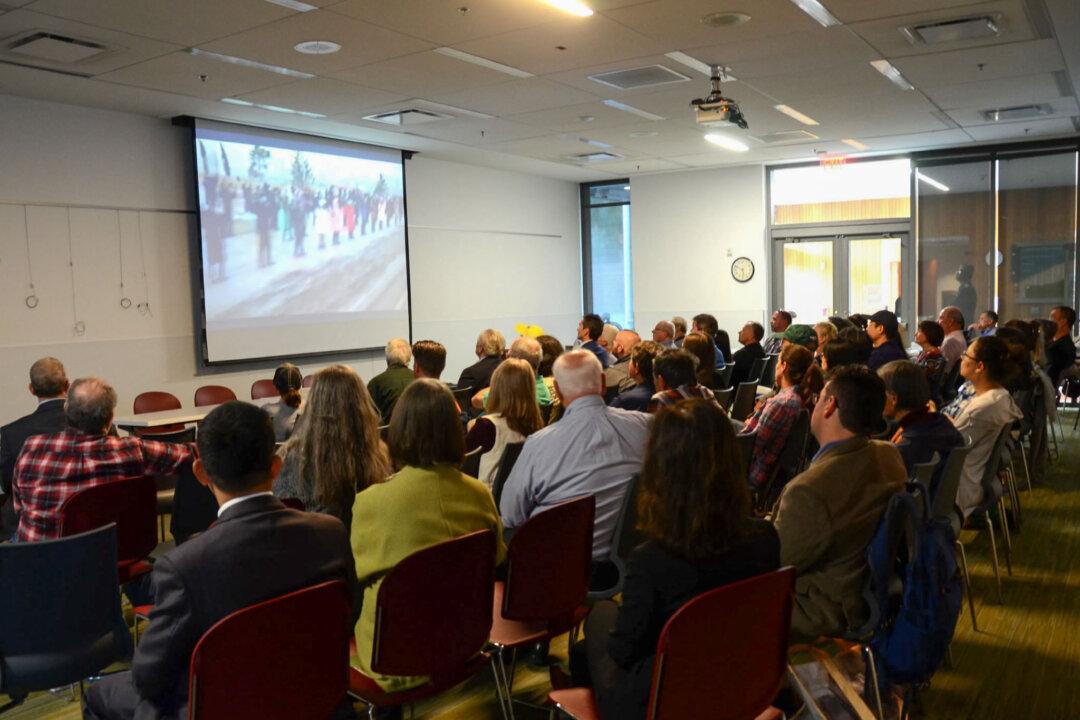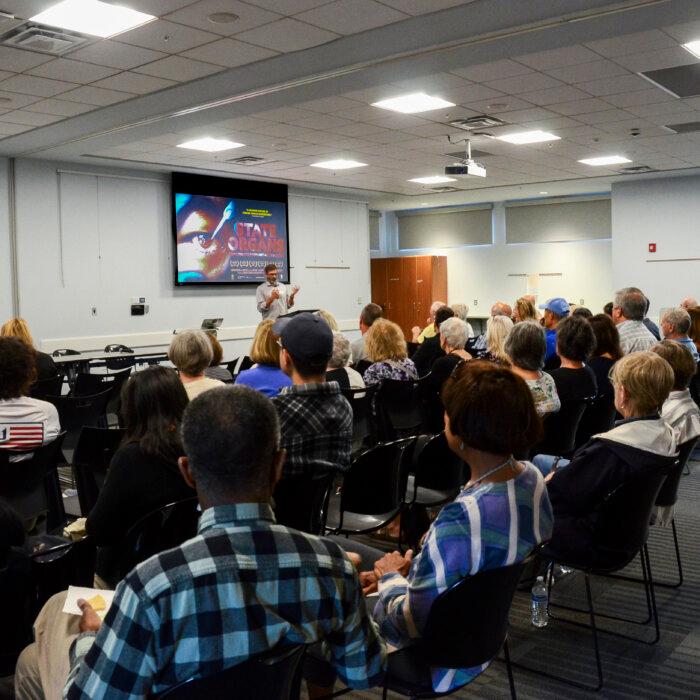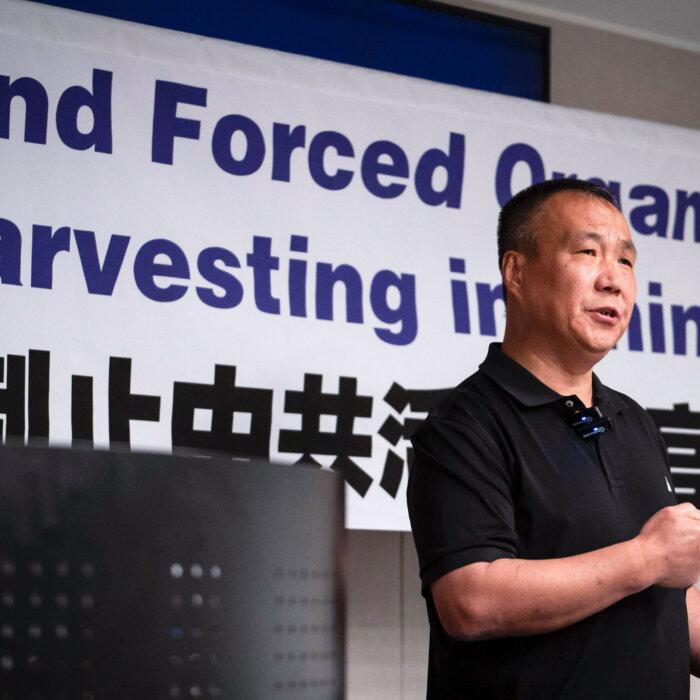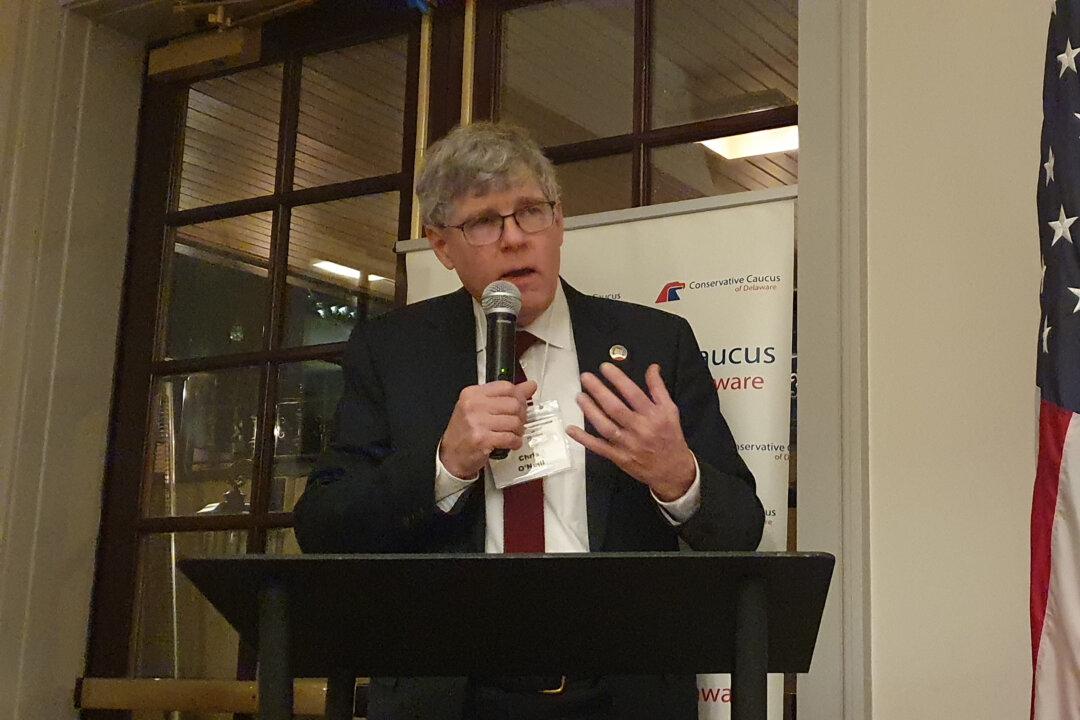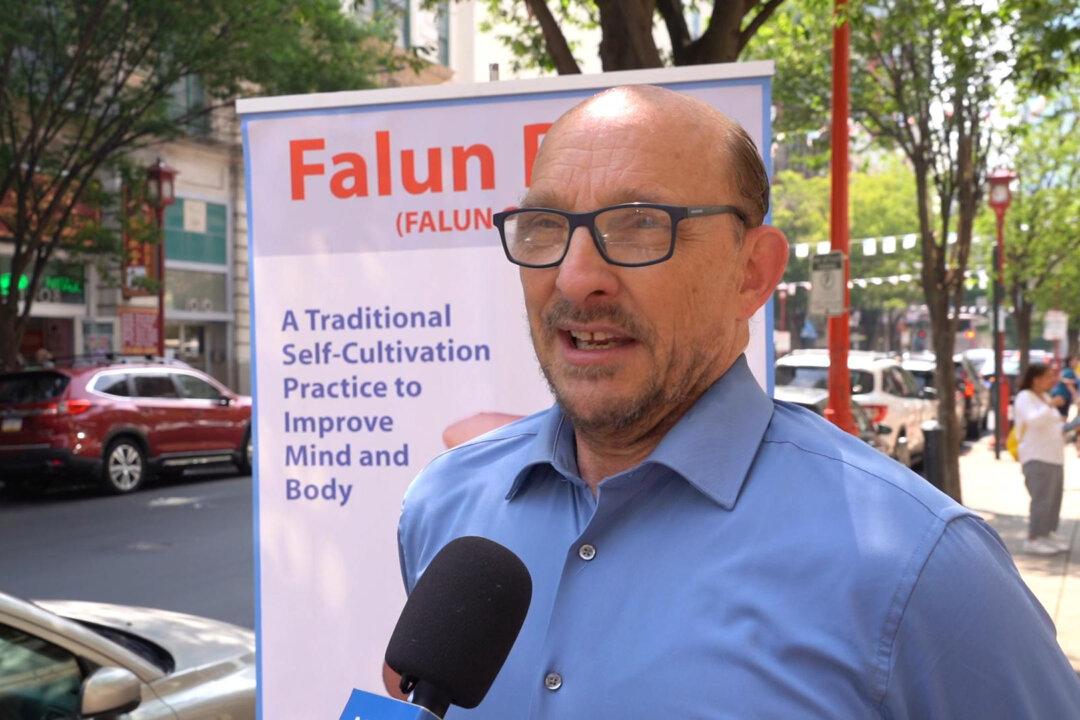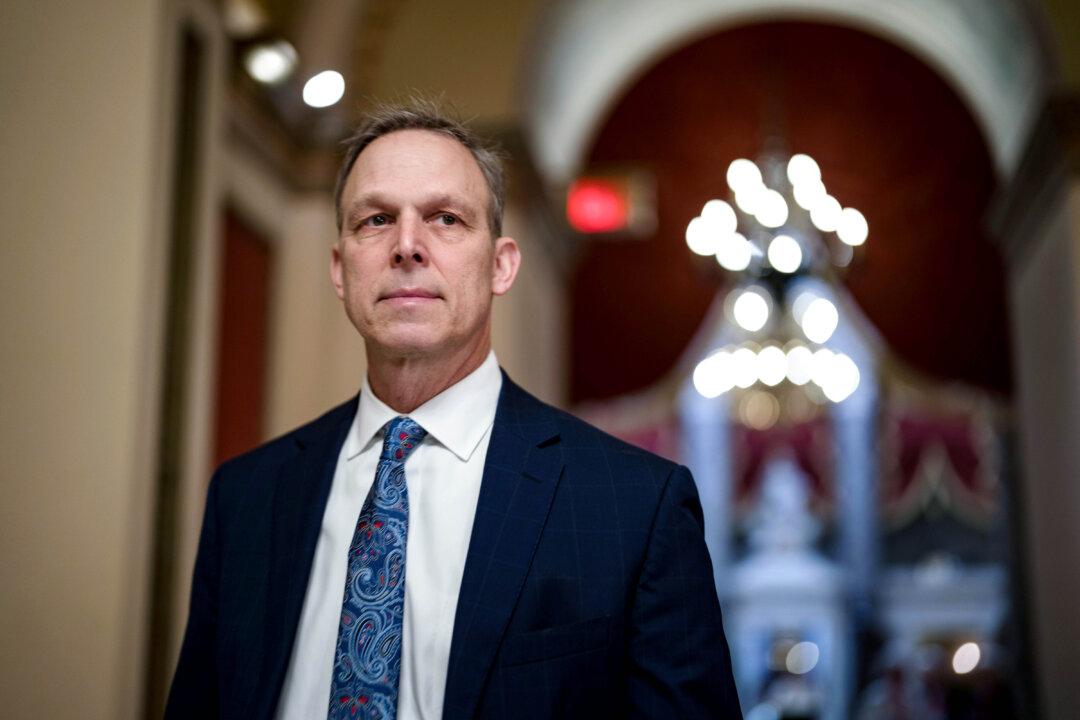HOCKESSIN, Del.—A viewing of the film “State Organs” was held at the Hockessin Public Library in Delaware on Oct. 21.
The 76-minute documentary details the Chinese regime’s transplant industry fueled by forced organ harvesting from living Falun Gong practitioners and other prisoners of conscience. It tells the harrowing tale of two families who embark on a perilous journey in search of their loved ones who mysteriously go missing in China. Over their 20-year-long journey, they uncover a shocking state-sanctioned crime in China.
After watching the film and listening to the personal story of Cheng Peiming, who earlier this year stepped forward to reveal parts of his organs had been forcefully removed while imprisoned in China, attendees said they were shocked to learn of the huge scale of this brutal crime that has continued for so long. Some were moved to tears.
Three state lawmakers attended the event and said they would take further actions to urge the Chinese regime to stop the abhorrent crime of organ harvesting.
Delaware state Rep. and House Minority Leader Michael Ramone said he’s feeling more and more distraught about why the world can’t fix this horrific problem.
“Every day, more and more people are falling victim, and it hurts. It hurts you inside, especially after seeing someone who’s actually been a victim, but fortunately survived,” he said.
Ramone talked to Cheng, who survived a forced organ harvesting operation in 2004, during which parts of his liver and lungs were removed. Cheng escaped another attempt in 2006 and finally made it to the United States in 2020 via the United Nations refugee program with assistance from U.S. government officials.
The gubernatorial candidate pledged to continue efforts to stop this forced organ harvesting. However, his efforts to get more statewide attention on the issue have been met with resistance.
“When asking people, why is it being met with resistance? Some are worried about the political ramifications. This isn’t about politics, it’s about people’s lives,” Ramone said.
He initiated House Concurrent Resolution 143 (HR143), condemning forced organ harvesting in China. The resolution was passed in the state House in June but was blocked in the state Senate.
State Sen. David Lawson faced a similar outcome. He co-sponsored HCR143 and proposed a similar resolution in 2022, only to see it blocked by the Senate leadership.
After watching the film, Lawson said the individual stories moved him the most.
“That’s heart-wrenching when your family goes missing and there’s no end. You can’t get closure,” he said.
Lawson described the film as “an eye-opener.”
“Very dark movie, and it’s something that we need to be awakened to before we have more genocide, more death, more murders in China,” he said.
He said Cheng’s story is “very compelling, and how he got out is a miracle.”
“He is the voice in the dark,” Lawson said.
The senator called for immediate action.
“Number one, quit supporting [communist] China...We can quit supporting China in the economic side,” he said, noting that making laws to prevent those who participate in transplantation in China from getting insurance coverage is a great idea to help end this crime.
“The big thing I heard here tonight is stop the insurance from paying it. That I think would be a big move, and that we can do.”
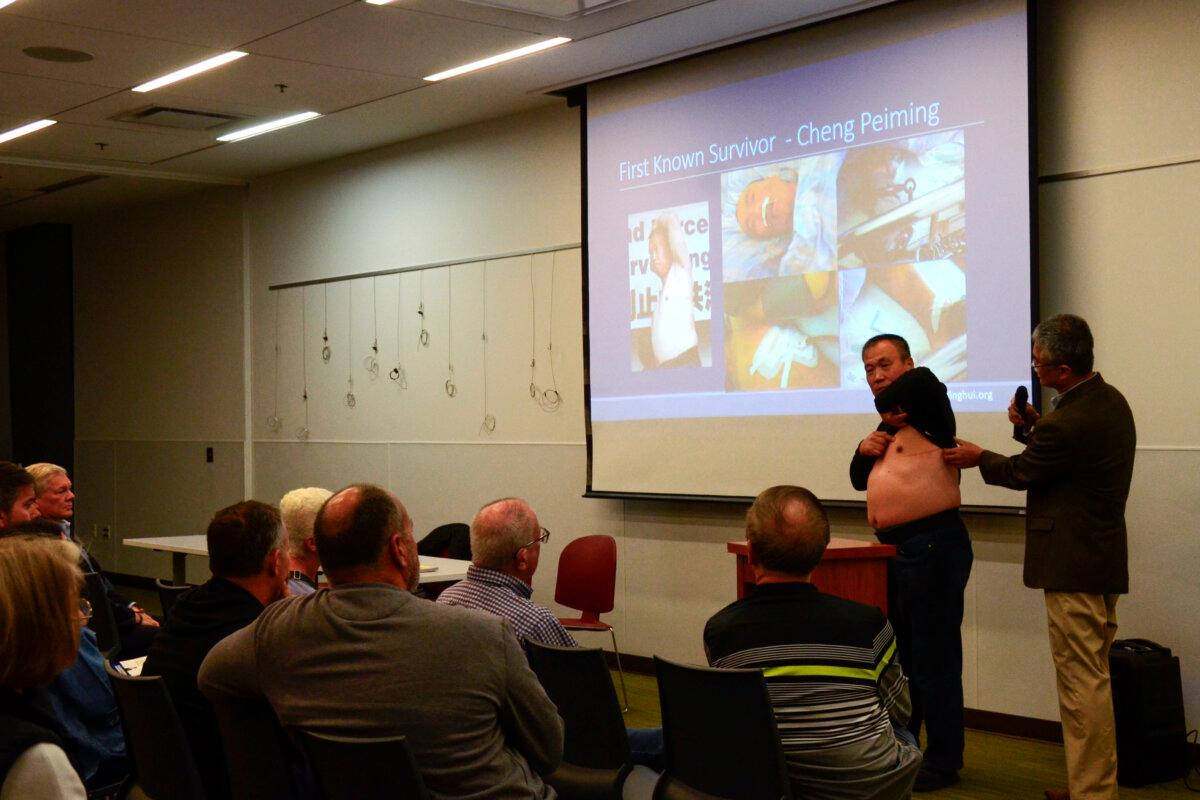
Several states, including Idaho, Utah, and Texas, passed bills into law that stipulate insurance companies cannot reimburse Americans for transplantation procedures they undergo in China. Countries such as Israel, Spain, Italy, Taiwan, Norway, Belgium, Canada, and South Korea have laws to prevent medical insurance for transplantation in China.
State Rep. Paul Baumbach, who also co-sponsored HR143, said he was strongly affected by seeing in the film the pressure put on those participating in the terrible crime.
“They must feel the pressure to do things that they know are wrong, but somehow they’re just in a system that just encourages them to not ask questions and proceed,” he said.
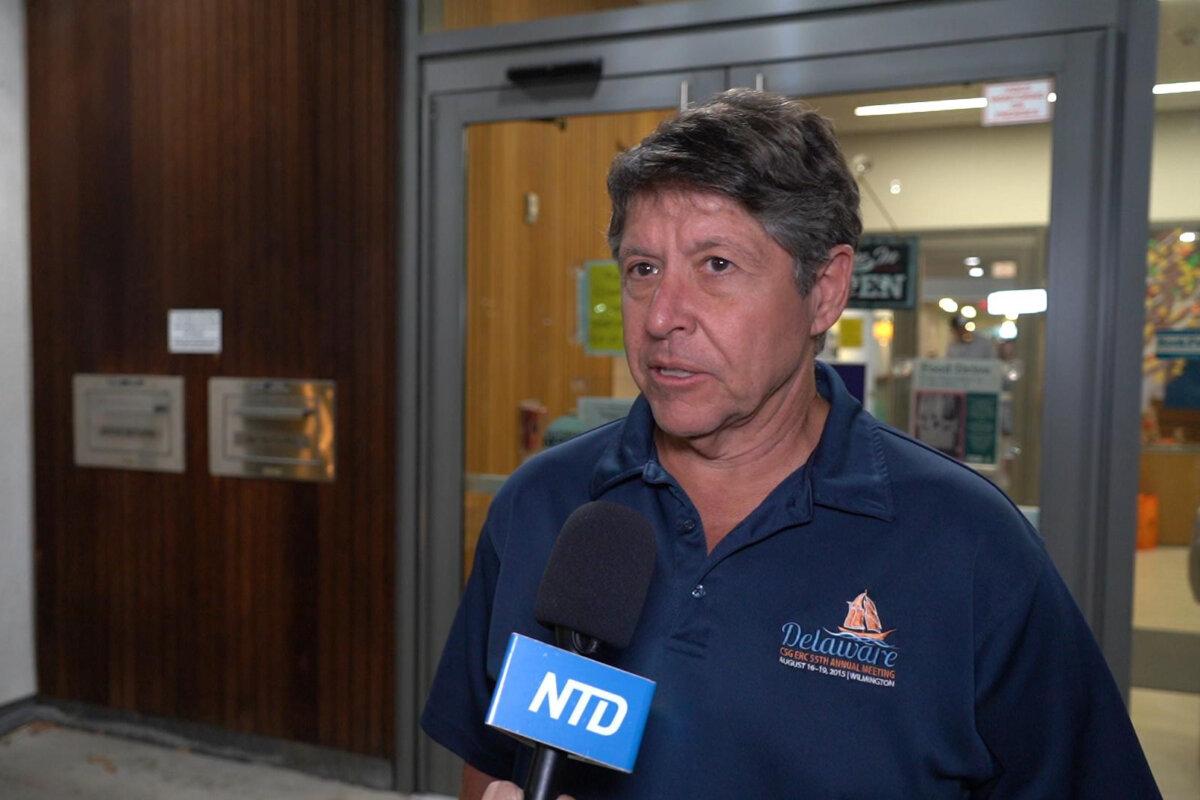
“It’s a very sad movie, and it talks about an extremely painful practice. It’s going on, and it tells the human story of the families and the friends that are affected, and the numbers are staggering.”
Baumbach found the film to be a powerful portrayal of an ongoing and painful crime.
“I feel very connected to the pain. And the scale of the pain is just, it’s very hard to fathom. So every time you learn more about it, it’s just more and more shocking,” he said.

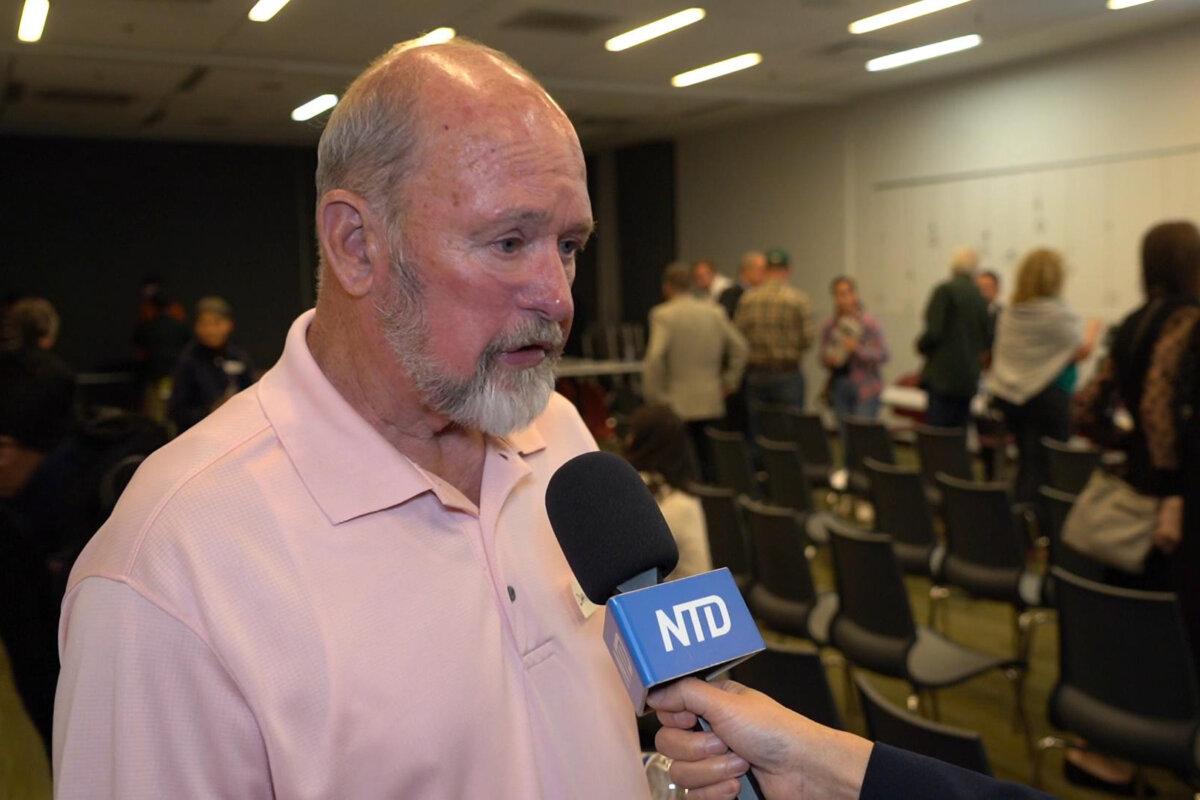
Responses From US Senate Candidates
Two U.S. Senate candidates and two state representative candidates echoed calls for increased awareness and action against this atrocity.Independent Senate nominee and former state Sen. Dr. Mike Katz told The Epoch Times after the event: “It’s actually astounding and infuriating that this type of egregious human rights problems are going on in China, and that we are aware of it in our country, and that we are not addressing the issues. ... But we fail to because of the influence of money. It’s very concerning, and that we need strong leadership in this country to step forward and to deal with it immediately.”
Katz emphasized how the film exposed the true nature of communism and its impact on humanity.
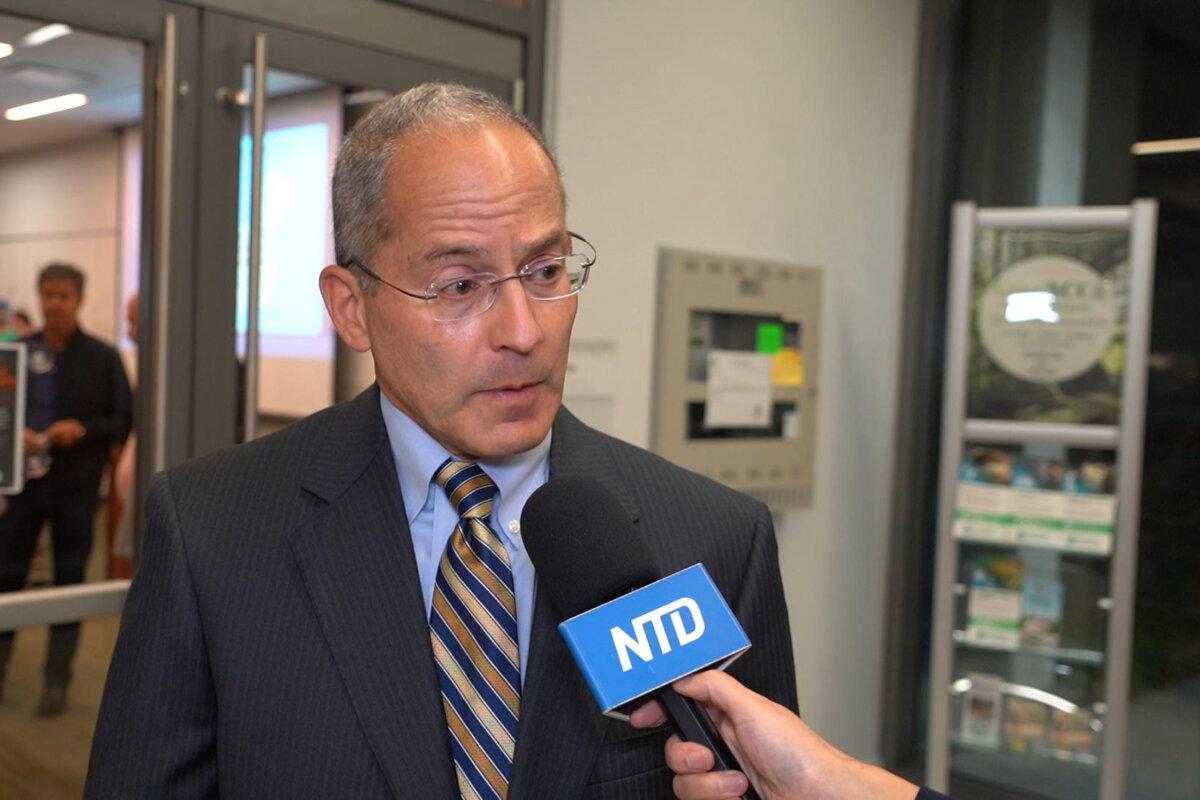
“It’s been a slow infiltration of communism mindset in this country. It’s occurring in our academic institutions. It’s the influence of money coming in from overseas that is teaching our students not how to critically think but what to think. And that is very concerning about the future of our country, but it’s been going on for several years,” he said.
Katz said he has always been aware that there were human rights issues in China. He calls on “people [to] become aware of the issues and not just stand by.”
U.S. Senate candidate Eric Hansen said the Chinese Communist Party needs to stop the abhorrent crime of organ harvesting.
“It’s just such a tragedy, and the fact that the world doesn’t know about this, the fact that you’re drawing attention to it, is very important,” he said.
Hansen was shocked when he first heard that the Chinese regime sponsored the murder and forced organ harvesting of its own citizens.
“We get the word out, please, because it’s such a huge issue that’s being unaddressed,” he said.
“You go to China, you wait one week, and you get an organ. You know what’s happening. You know that you’re getting an organ from someone who is killed to benefit you. That’s unacceptable as well.”
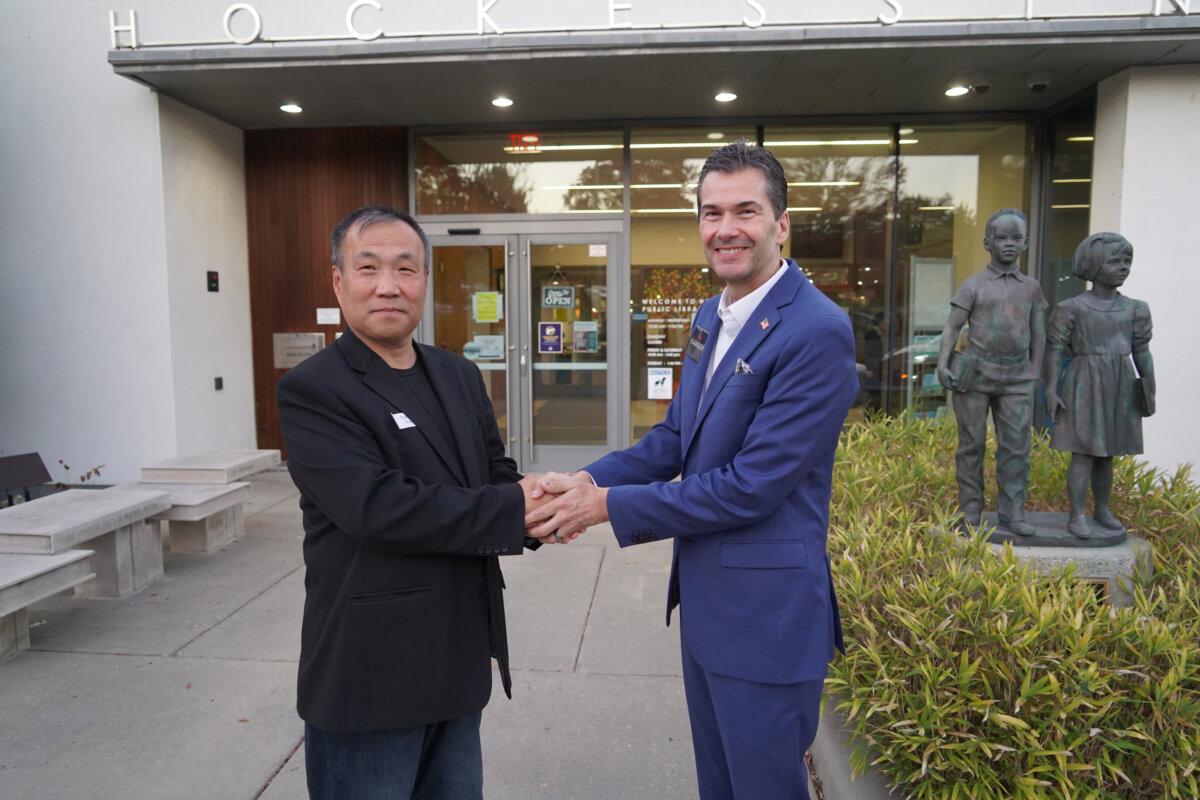
Hansen called for more awareness of the issue.
Voices From State Representative Candidates
State representative candidate Alex Homich says it’s important for people to come together to prevent atrocities such as forced organ harvesting.“Now more than ever, I think it’s really time for people to open their eyes a little bit more to what’s going around. Even though we’re separated by imaginary minds, we’re all human beings,” he said.
Homich calls for more vocal advocacy and education on forced organ harvesting, particularly among the younger generation.
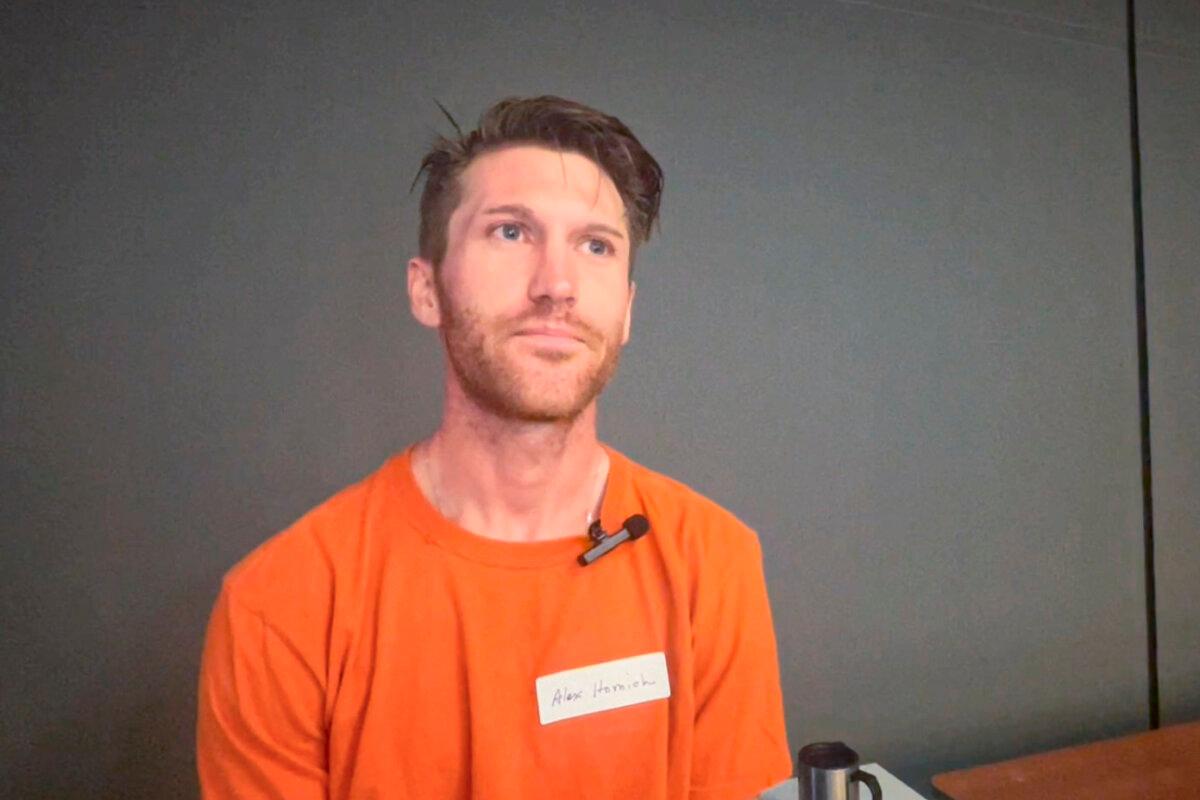
State representative candidate Chris Beronio, who lived in Hong Kong from 2012 to 2015, knew about forced organ harvesting in China but was still shocked by the extent of control exerted by the Chinese Communist Party.
“The movie was just absolutely incredible, very moving, and I would say, honestly scary, with some of the facts that are coming out about the forced organ harvesting in China, I was shocked about what I was seeing,” he said.
“I'd say Chinese people are aware of it in China, and yet they still allow it to happen, which means that the government must have an incredible control over society, over how people behave, the messaging they get, the stories they’re told, what they believe is truth, or what they’re told is the truth.”
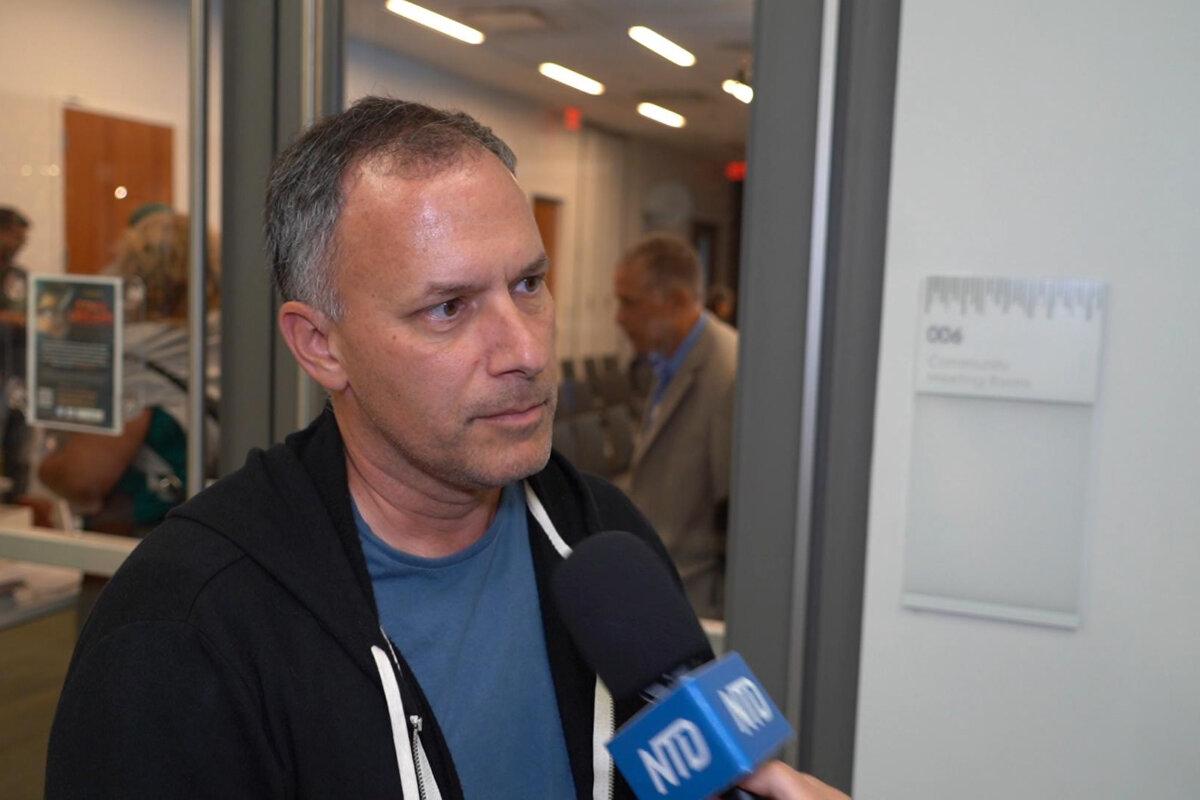
Beronio said he admired Cheng’s survival and escape.
More Voices, More Action
Philip Reynolds, a financial analyst, also shared his concerns with The Epoch Times.“I was already aware of the evil of communism, but this opened my eyes to the scale of the murders that are going on,” he said.
Reynolds advocates for international economic sanctions and individual boycotts of Chinese goods to address these crimes.
“I think all kinds of pressure should be brought to bear to put an end to this kind of thing,” he said.
Reynolds thinks people should get on the right side of history today and not be blocked by money.
“But instead, they don’t want to give up the business opportunities that there’s a billion or 1.2 billion consumers in China, and we don’t want to give up access to those consumers. Well, you’ve got to take a stand,” Reynolds said. “Would you have said the same thing about not giving up access to the markets in Nazi Germany during the 1930s and the early 40s? It’s the same thing.”
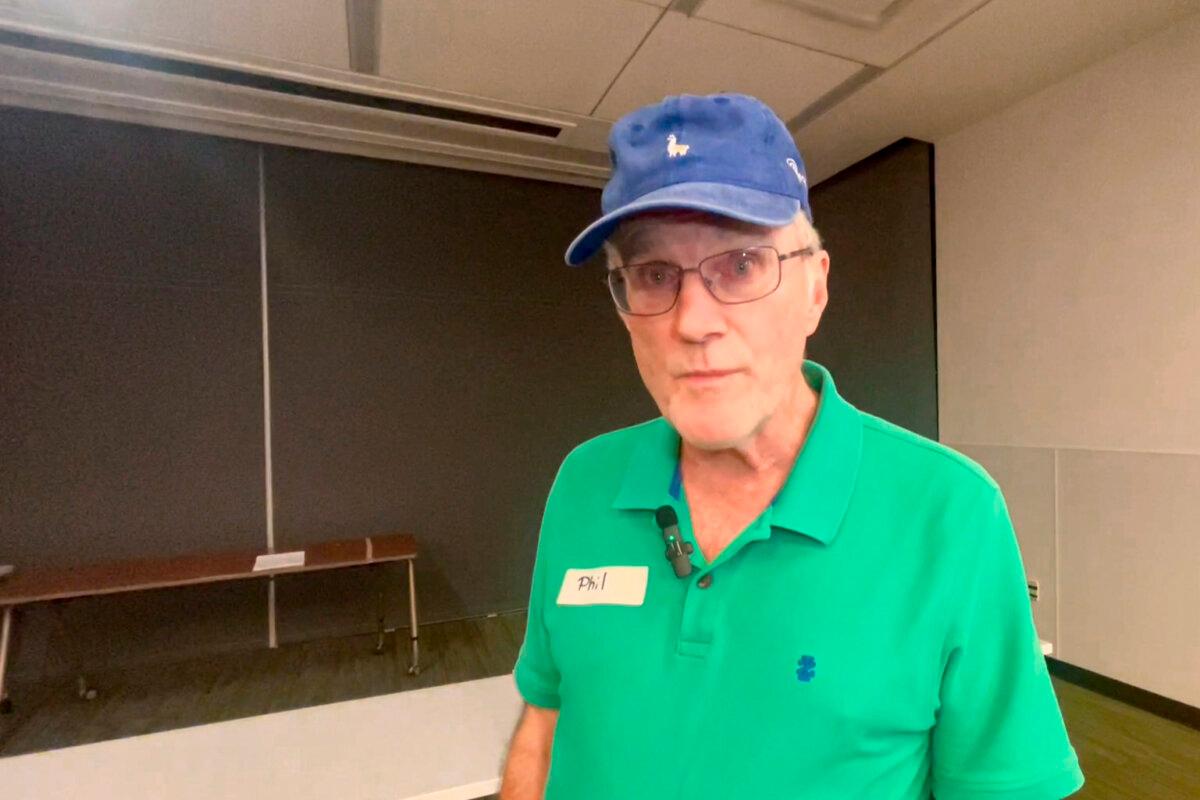
Mental health counselor Delphine Baffone says people like to talk about the Holocaust as if those kinds of horrors are behind us.
“They’re not, and we’re living in a time where that is continuing to happen in China, and it’s just unacceptable. I was really struck by the bravery of the people who were here to share their stories as well,” she said.
She said she is disturbed by the idea that a country can fall prey to communism and by the media’s role in misleading the public.
“I think we should pray for all the people that are suffering, because God is bigger than their devil,” Baffone said.
Many attendees signed the petition to support the Falun Gong Protection Act before leaving.
Baffone said she will call U.S. Sen. Chris Coons to co-sponsor this act and tell other people to call him, too.
“I think everybody who left here tonight has an obligation to share that story,” Baffone said.
The audience appreciated the investigative research that brought this issue to light and thanked the organizer for having the courage to bring a film like this to people in Delaware.
The screening was hosted by the Ending Forced Organ Harvesting Rotary Satellite Club of CAAHT (EFOH.org) and co-sponsored by advocacy groups including Doctors Against Forced Organ Harvesting (DAFOH.org), Delaware Medical Freedom Alliance (DelawareMFA.org), and the Greater Philadelphia Falun Dafa Association (GPFDA.org).
